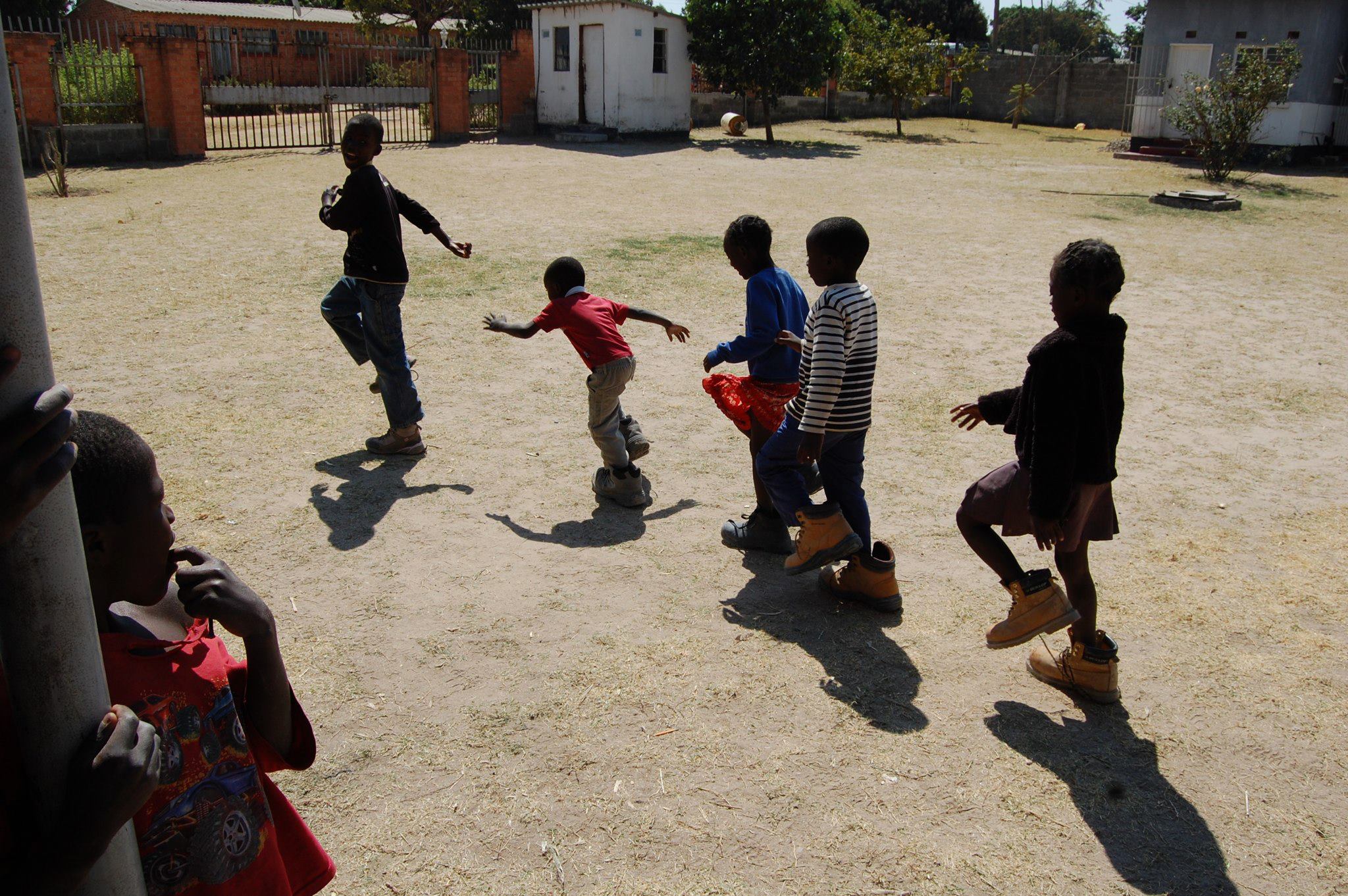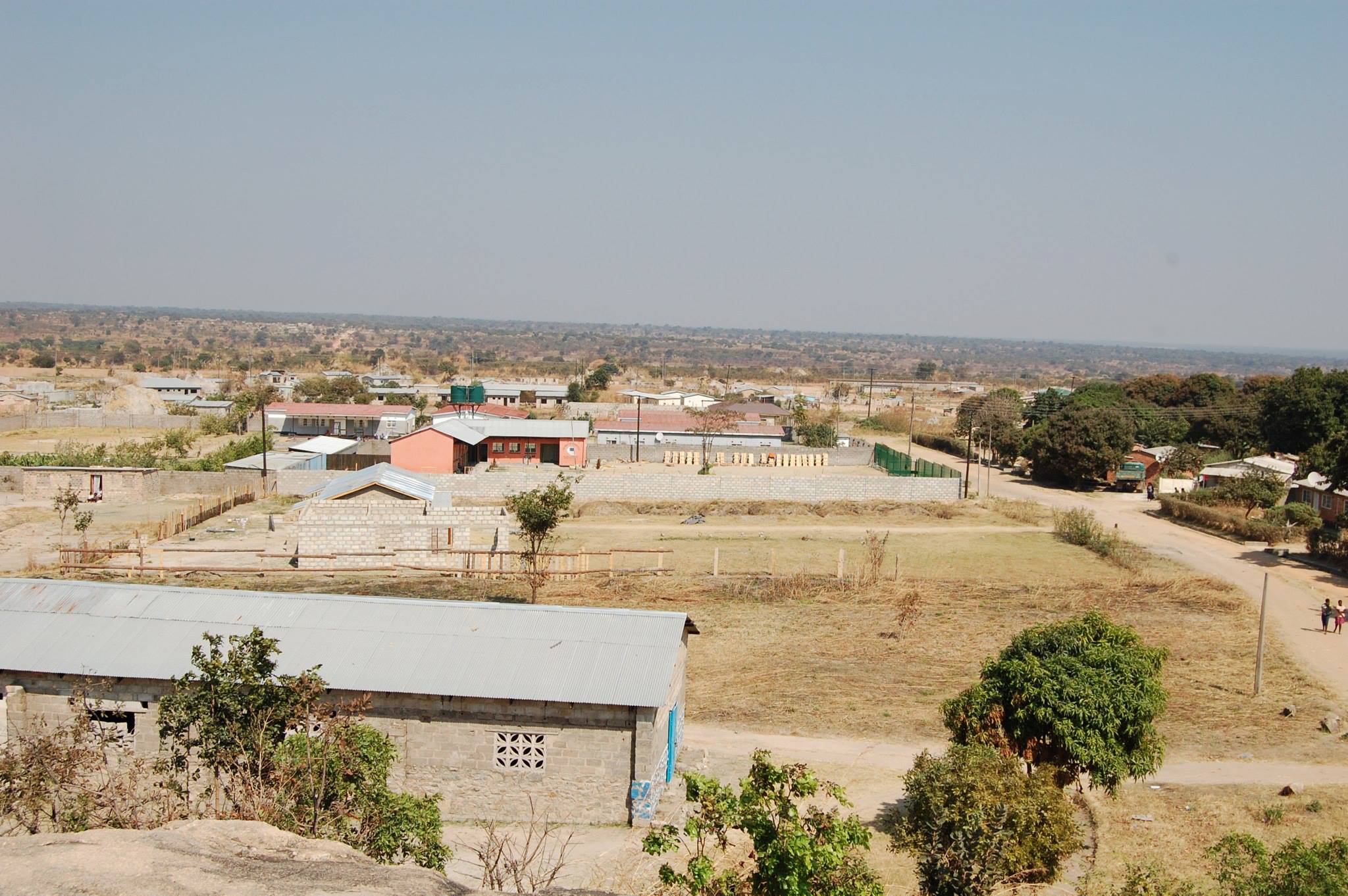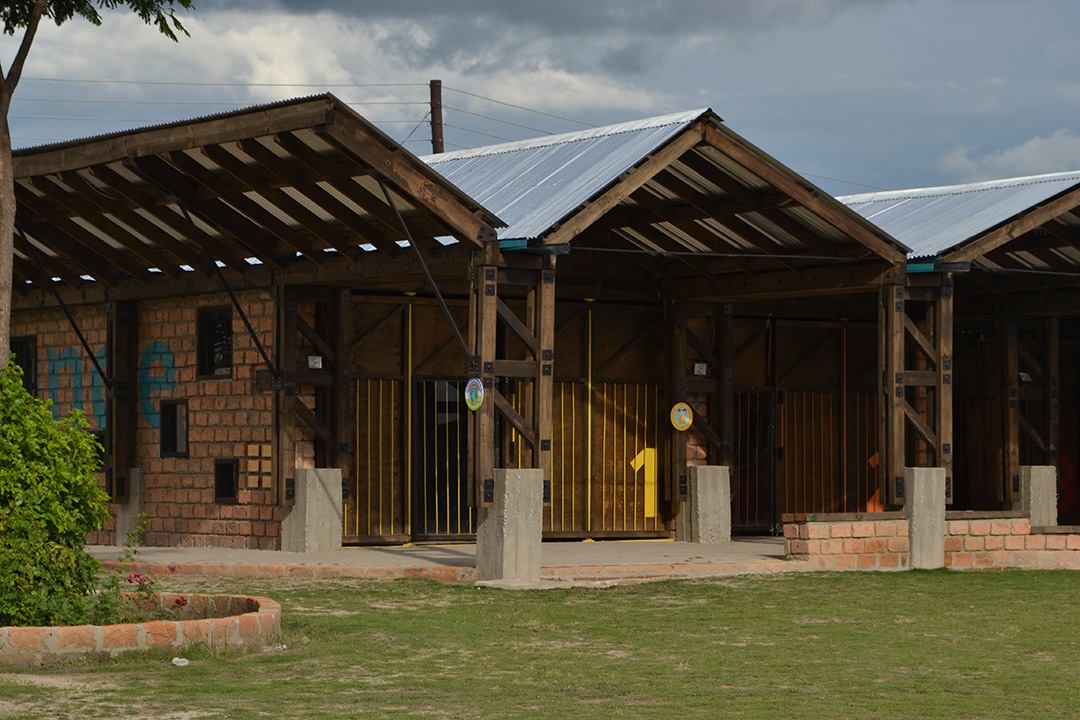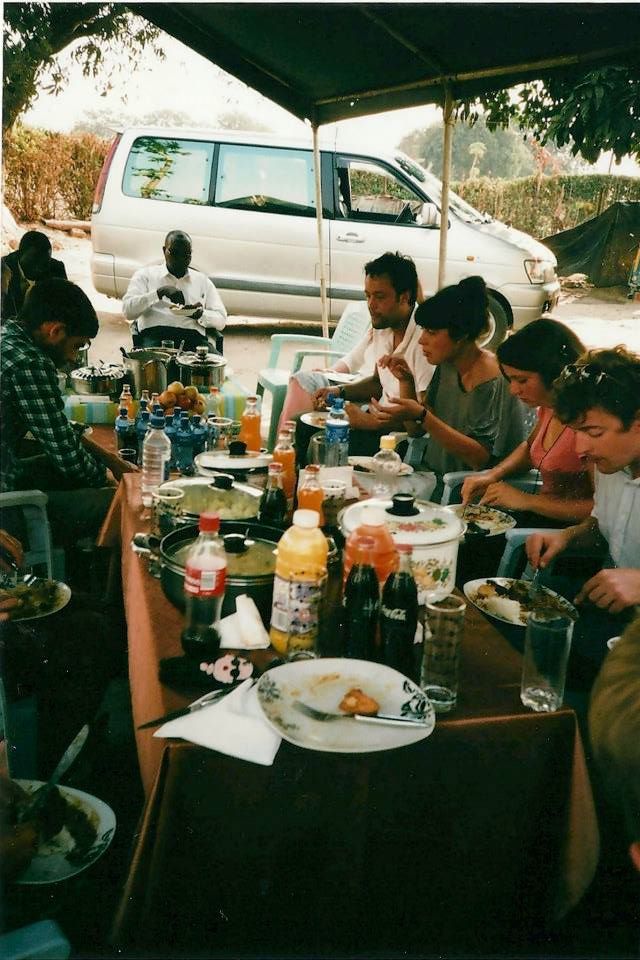
Paul Elliot
Glasgow School of Art, 2013

Paul Elliot
Glasgow School of Art, 2013
The ISA Travel Award gave Paul Elliot the support he needed to be part of a truly life changing project. Over the summer of 2013 he was part of a volunteer team working for the award winning architectural charity Orkidstudio, whose aim is to empower and improve the lives of disadvantaged children across the world through design and making. The charity was young, but was already providing positive and life changing spaces to the communities it was working in - having already completed projects in Bolivia, Zambia and Uganda with the purpose of improving conditions for children, whether in education or orphanages.
“The summer of 2013 was to be the most memorable and greatest of my life, we were going out for 7 weeks to construct 'The Mutende Part Two', an extension to an existing school in north eastern Zambia. The new building would double the school's capacity by providing an additional four classrooms, a store and a head masters office. The key concept was that three of those classrooms could open up into a single large function space for everyone in the community to benefit. The aim of which would be to help integrate the children from the attached orphanage with the local children and families, dismantling the social stigma associated with orphans that exists in the community.“
However, it was always more than just a building project. For the duration of the program they would be living next door to the school in the attached orphanage. Both the orphanage and school were sponsored and overseen by churches based in the UK. The orphanage was home to around 40 orphans and children in need of protective shelter at the time. When ever Paul and the team were not working on site, they would be playing with the children and getting to know them. They would play football, dance and even have the occasional water fight; and was a really eye opening and humbling experience to live within the community.




"A day does not pass that I don't think about my time in Zambia, the building and the people. Thank you Traverse Trust for your support in what has been the greatest achievement and time of my life."
— Paul Elliot





The volunteer team consisted mainly of architecture students at different stages of study and from different parts of the UK. This project brought them together on this single cause. In the proceeding months to departure, they designed the new school building during three weekend long workshops, a key part of the volunteer experience and the collective design approach of the charity. For Paul and some of the other students this would be the first time they would be working on a real design for a real building. It really helped develop the theoretical lessons they had been learning during their studies by applying them to a meaningful real life project. The weekends were also important in bringing them closer together as a team, helping develop the chemistry which helped make the project such an enjoyable success.
“We all assembled from different corners of the UK in London for the joint departure to Lusaka, Zambia's capital city. This would be the furthest I had ever been from home and the first time outside of the EU. I could not wait!”
Arriving early and already tired they then hopped onto a privately hired coach that would take them from Lusaka, roughly in the middle of Zambia to our destination of Lulamba, a stones through from the border with the Dominican Republic of Congo in Zambia's Copperbelt region. The landscape was flat and arid through out the journey north. After nearly nine hours we arrived just before dusk into the orphanage in Lulamba, a small village on the outskirts of one of Zambias main mining towns, Chingola. Chingola was described in travel guides as a massive mine with a town in the middle - which Paul and the team felt was a very literal and accurate description.
Their home for the seven weeks was one of four houses within the orphanage compound. The following afternoon saw their first day on site. The build was tough both physically and mentally, working long hours and six day weeks for the duration of the project. Enjoying the challenge, the team were endlessly problem solving, designing and making.
“We did manage some down time to recharge and play with the children. Sundays were set aside for this important and meaningful time. One the children's and our own favourite activity would be to walk to one of the nearby rock mountains. What must have once been volcanic plugs have become a sort of informal public park, a gathering place in the evenings where all sorts of people from the community came to watch the sunset and chill out. “
The group's fifth weekend was the only time in seven weeks in which they took some time off away from site. The build program was just about on schedule so the majority of the team decided to visit Victoria Falls on the opposite side of Zambia. This was a bit of an epic journey over a couple of days down in Livingstone. Livingstone is the old colonial town near to Victoria Falls, where they would be staying for the weekend. To get the most of their weekend in Livingstone they had a busy schedule, arriving in the afternoon after a night and day of travel. First on the list was the sunset cruise on the Zambezi river upstream of the Victoria falls. It was a chance to relax and enjoy themselves while watching out for baboons along the river bank, all finished off with a stunning sunset. The next day they were up bright and early to go on a safari in the Mosi-oa-Tunya National Park. For most of them, including Paul, it was their first ever safari and the closest to some of the Big Five they had ever been.






“It was a true highlight of the whole trip, around each corner there would be a shriek of excitement as another animal came into sight. Later that day we went to see the magnificent Victoria Falls, a surprisingly underdeveloped tourist attraction, the scale and beauty of the falls was not something I was expecting to see during the seven week humanitarian project.
Although the water was at its lowest of the year, the experience of the spray soaking you and the size of the waterfalls was amazing, as was only being metres from the Zimbabwe border separated only by the power of nature.“
On return to Lulamba and the school they were fully charged and freshly motivated for the final two week push to complete the building. These weeks were the longest of the project, often working through to the early hours. Even on the last day they were working up to about 4 hours before our coach departed from our adopted home.
That afternoon was the hand over ceremony and their chance to say good bye to everyone. Some of the workers Paul had become friends with returned to see the building finally completed as well as to take photographs of their work. It was unfortunate that they could not have stayed longer to fully absorb their achievement, but in the end they were there to build and that is what they successfully did. It was a fantastic project to be part of and the legacy of the building to the children and the community will last decades.
